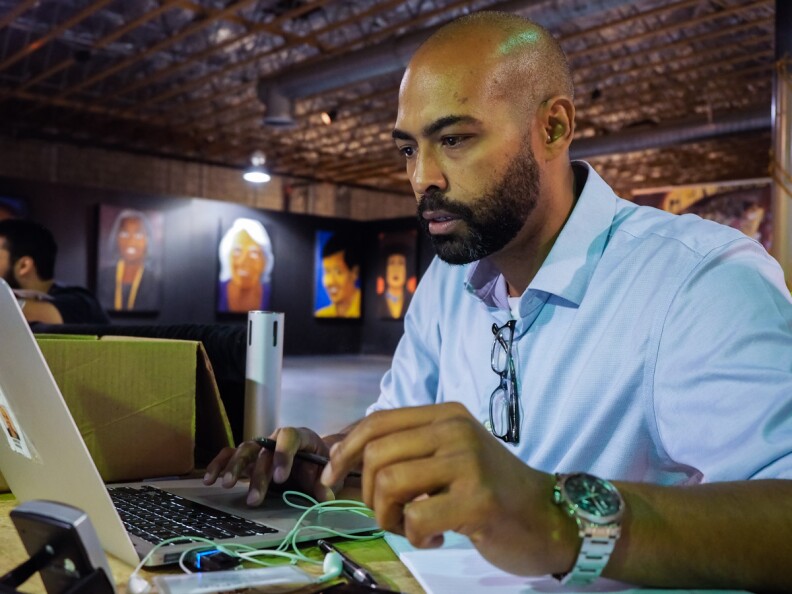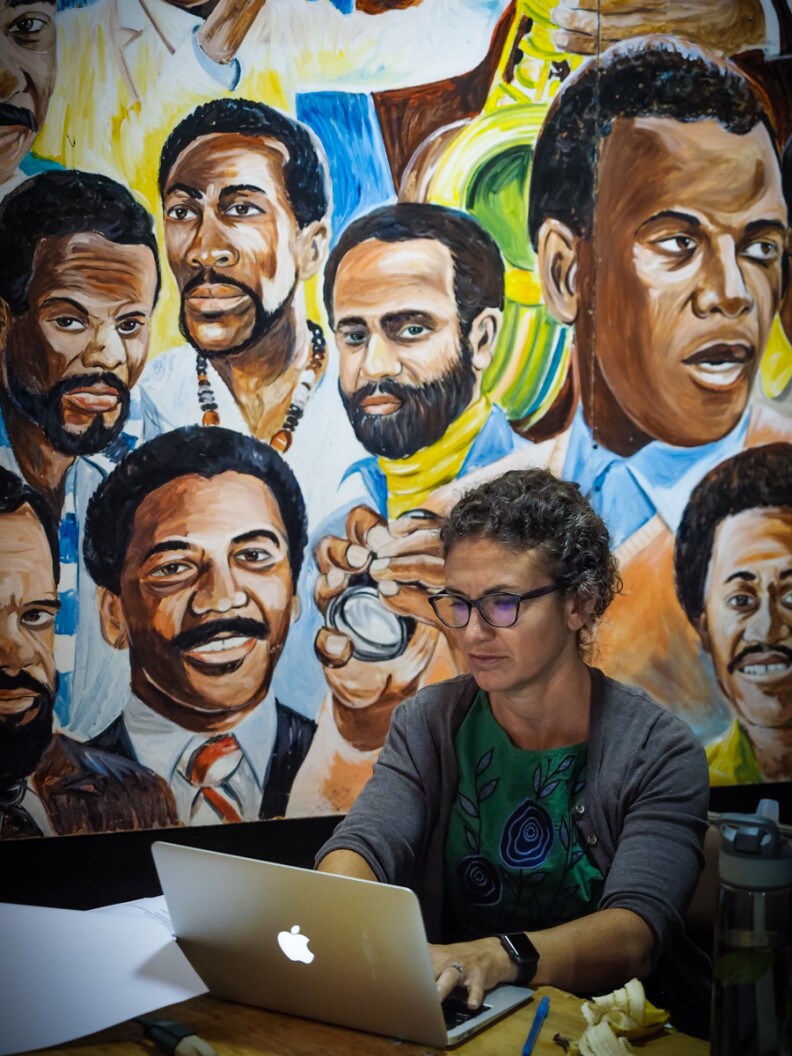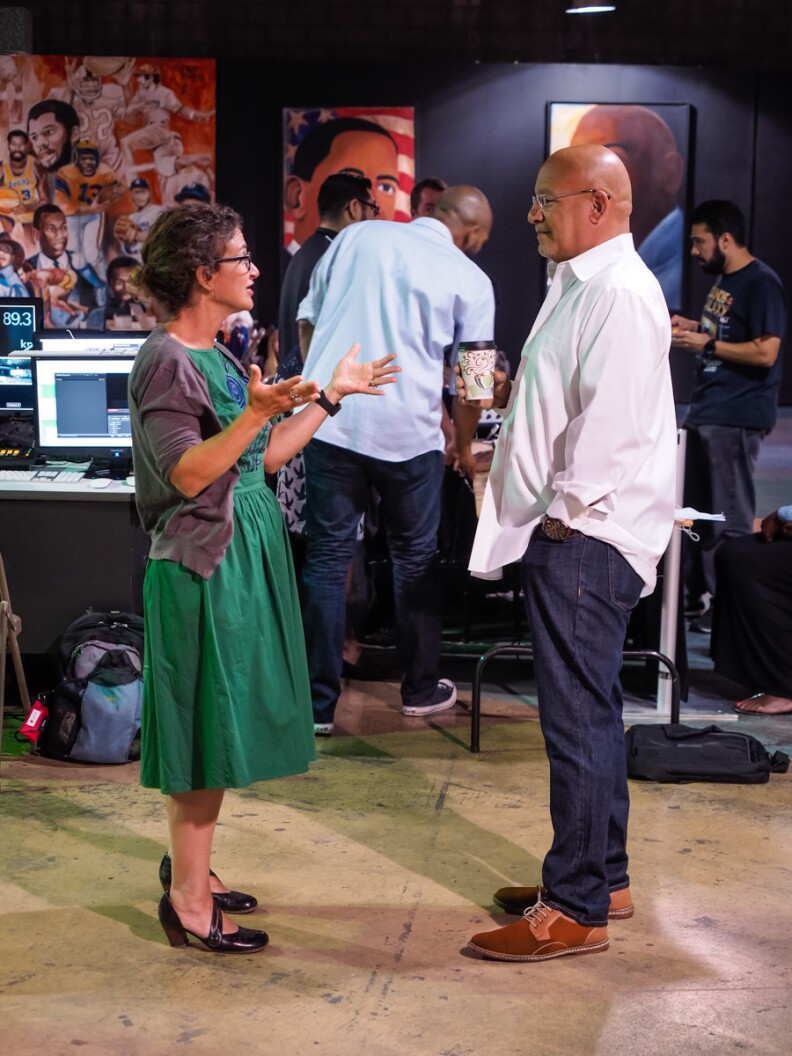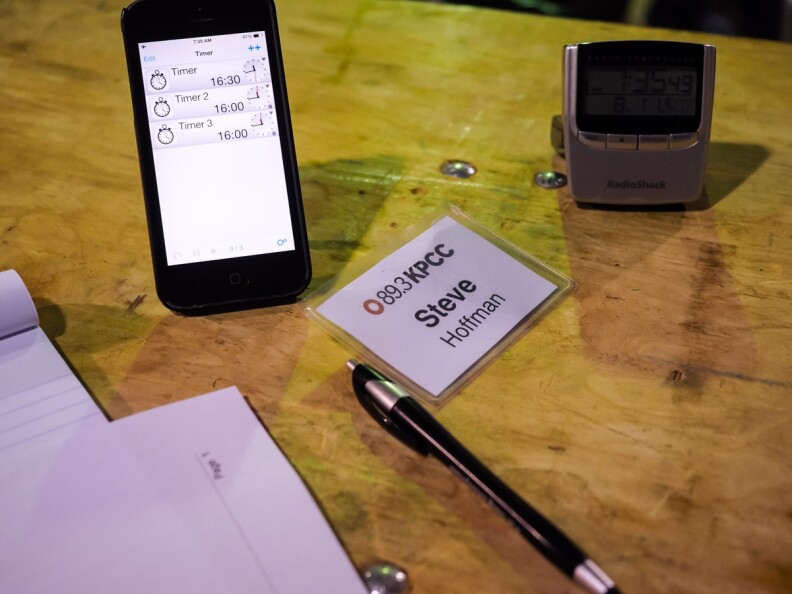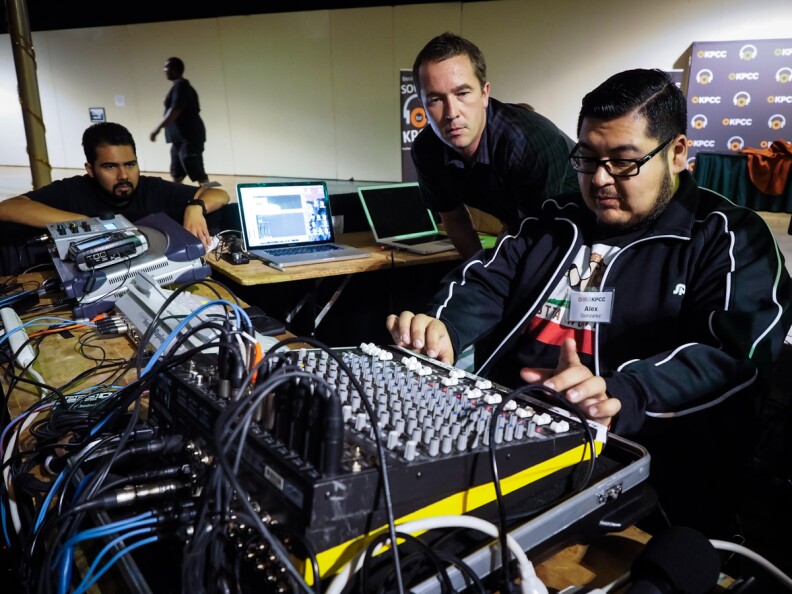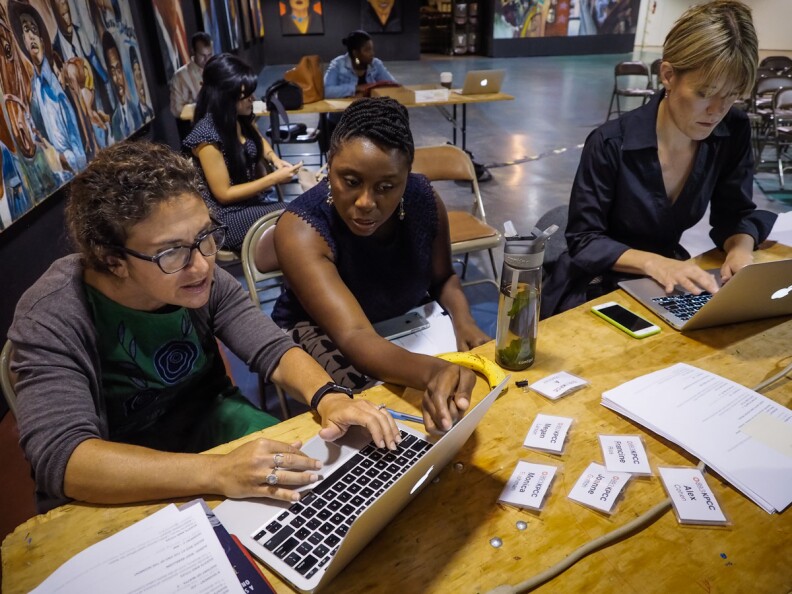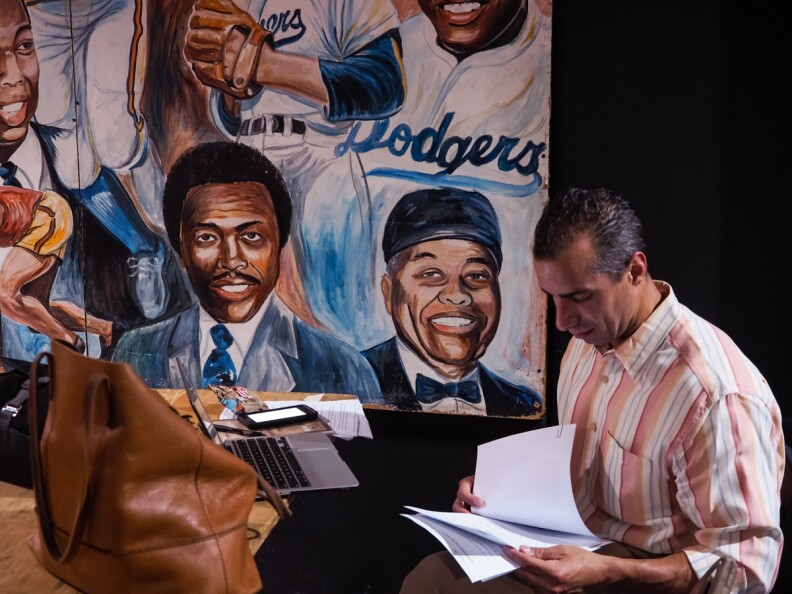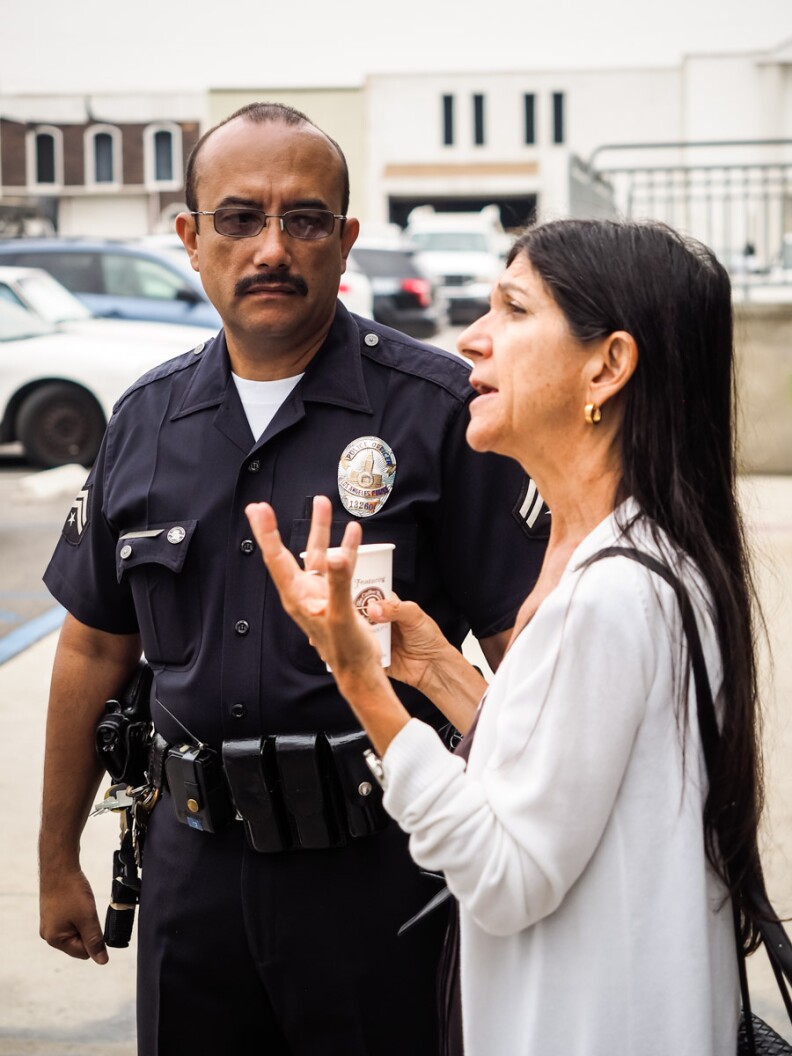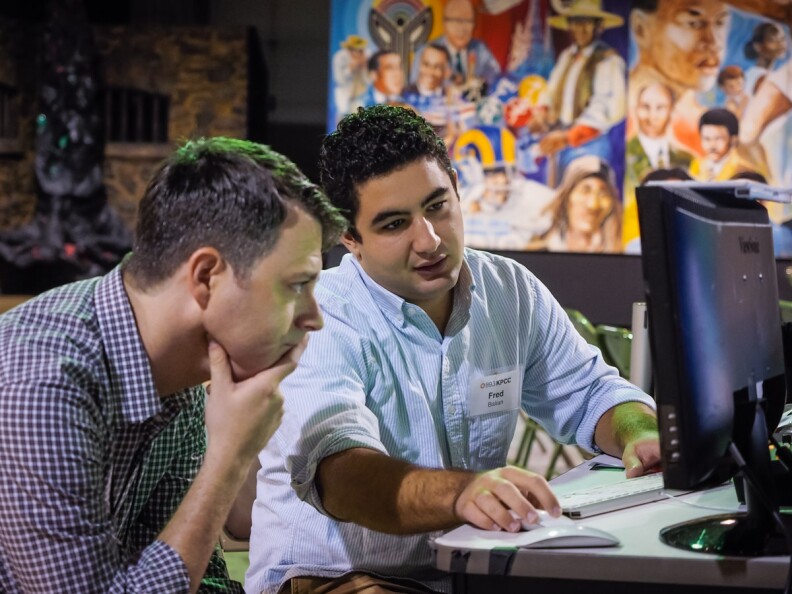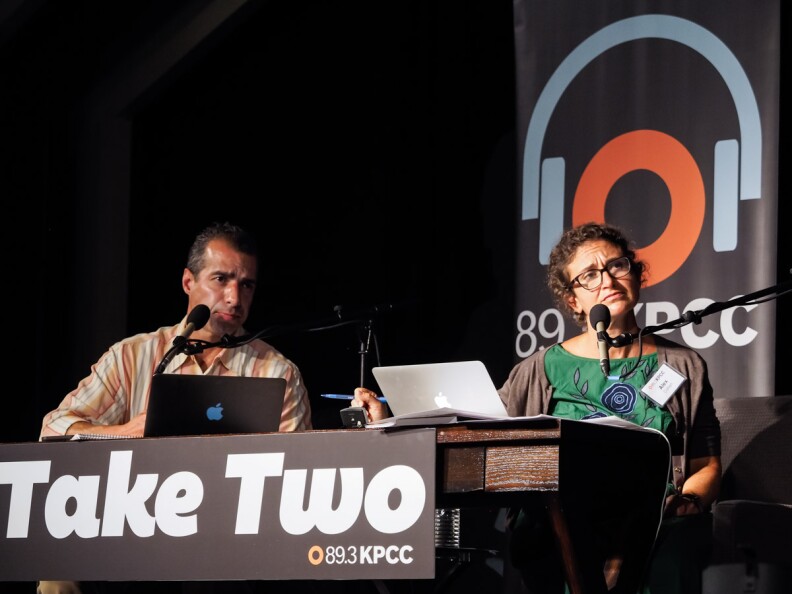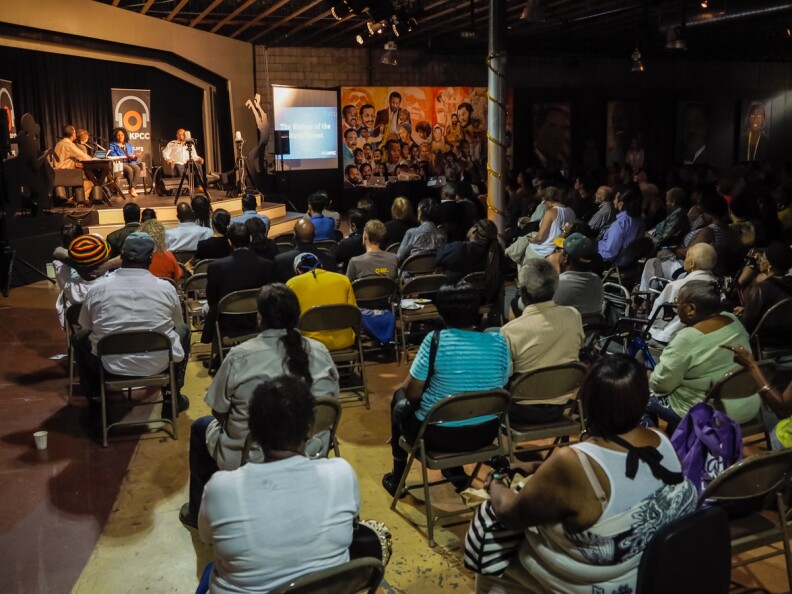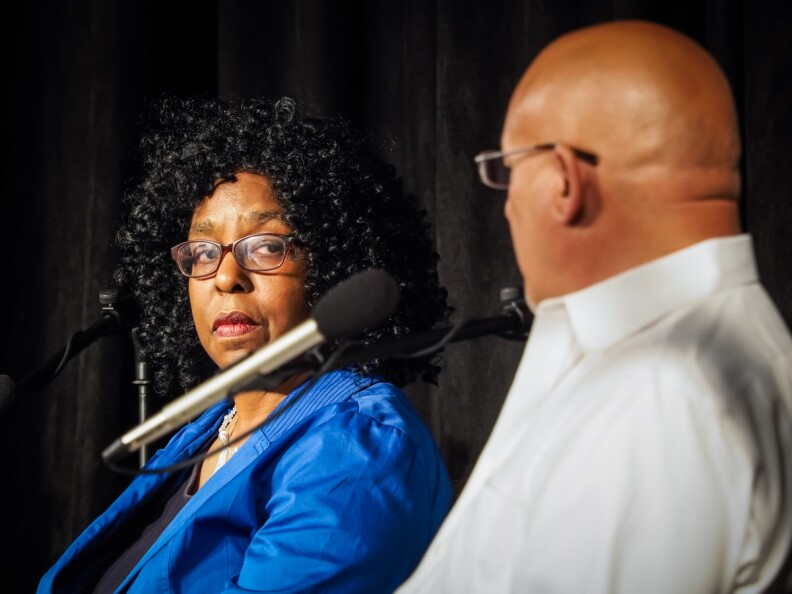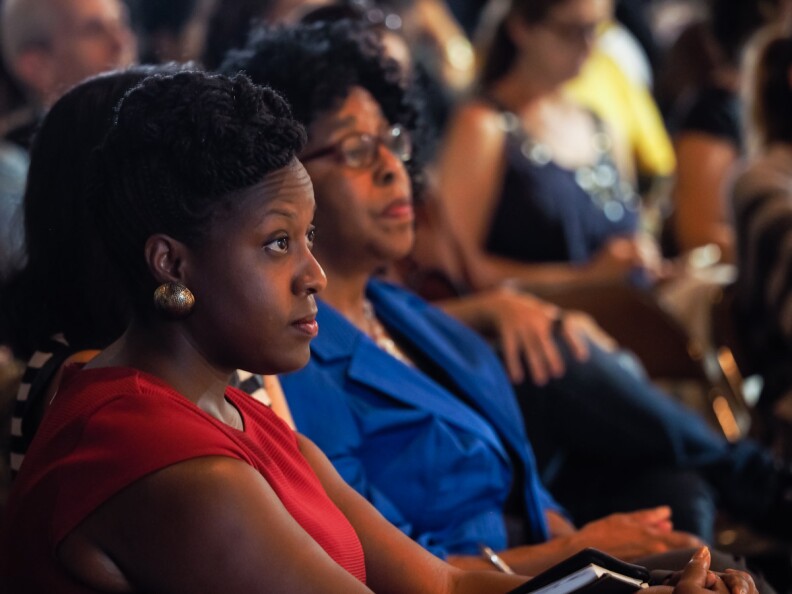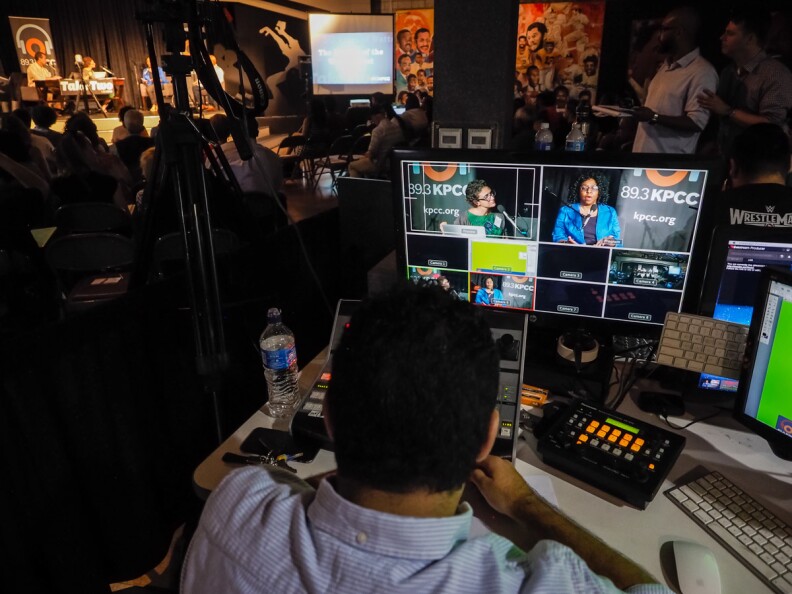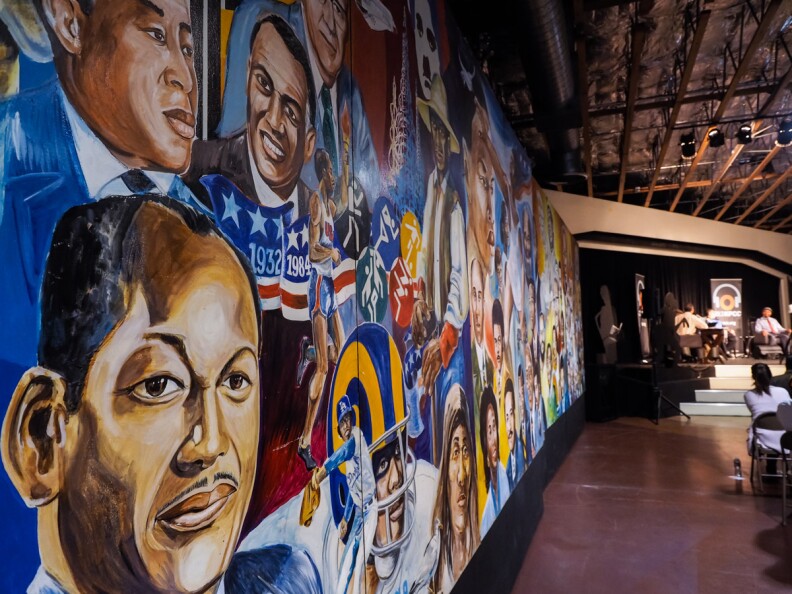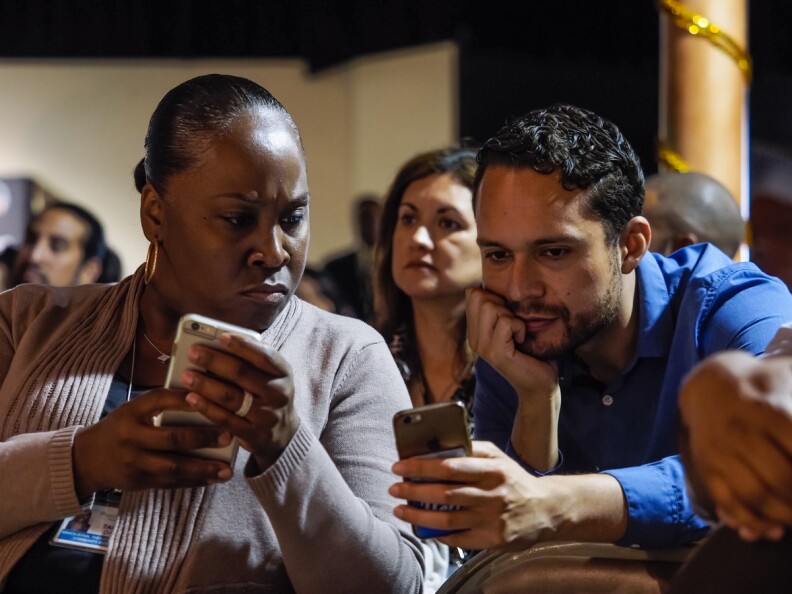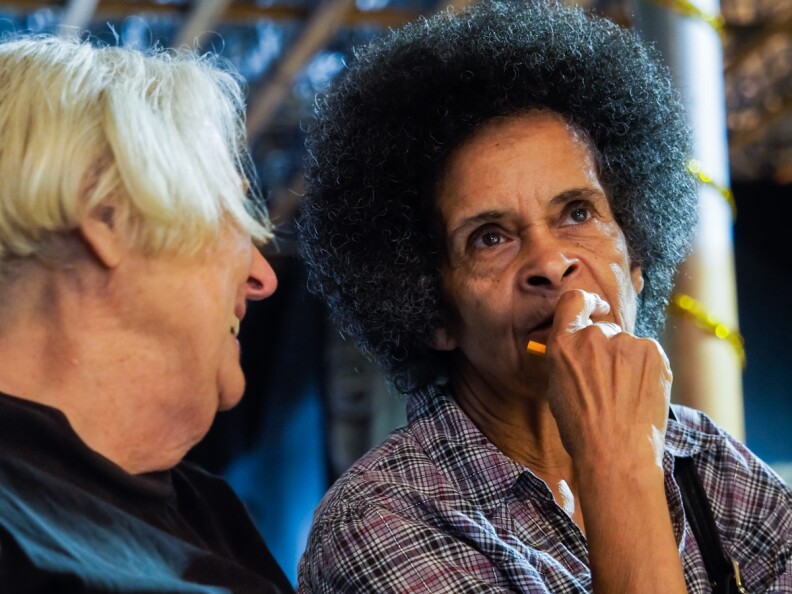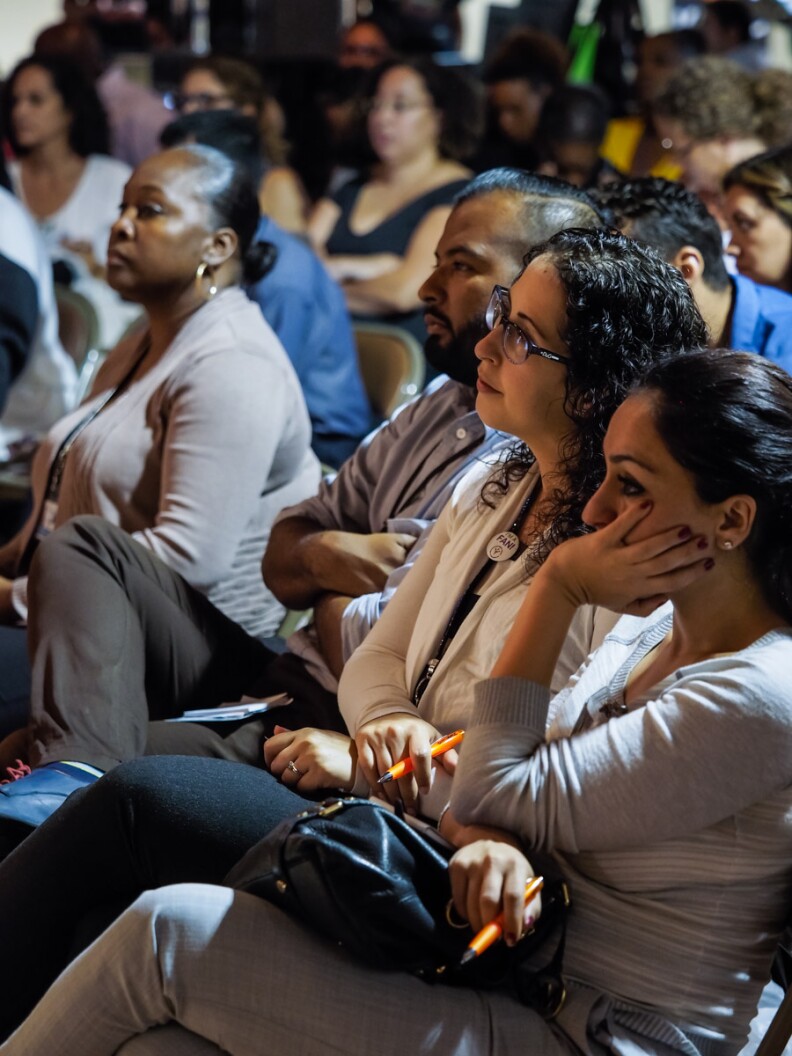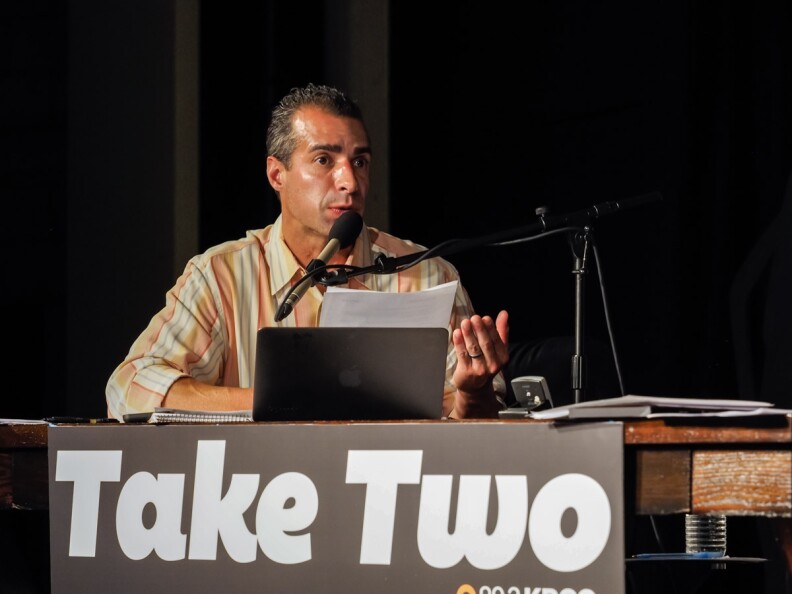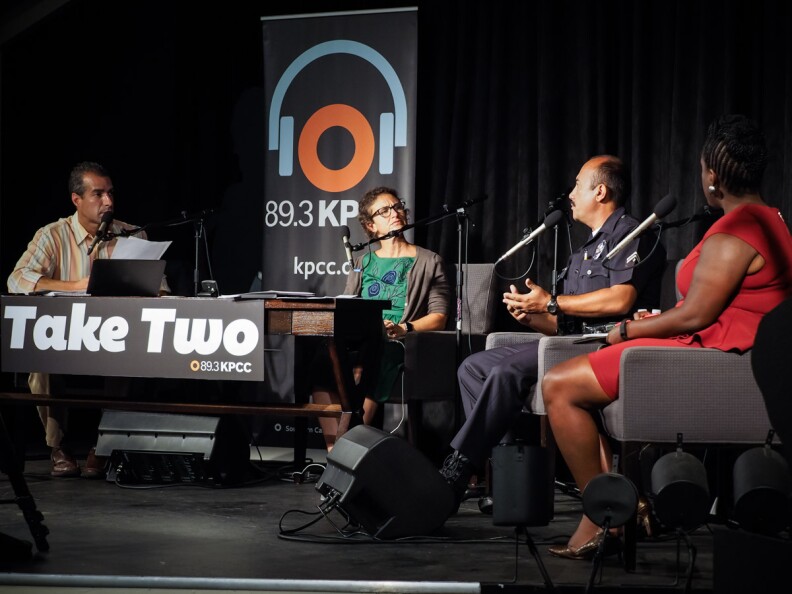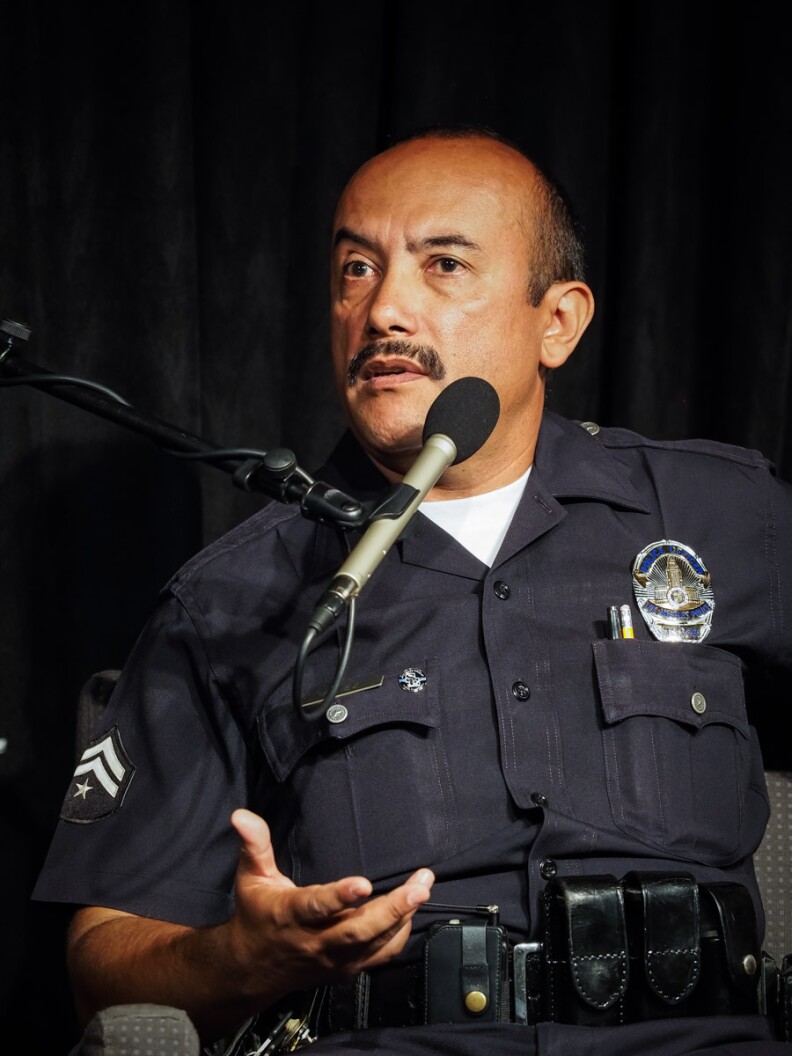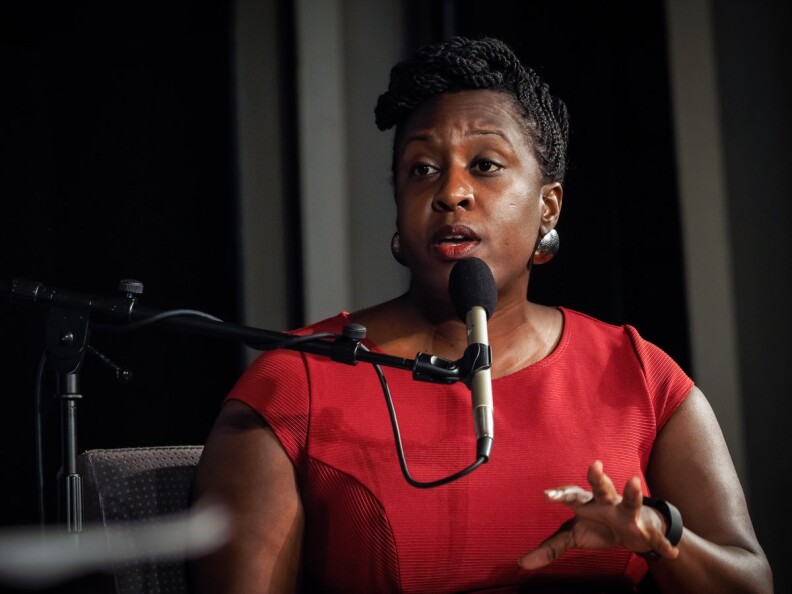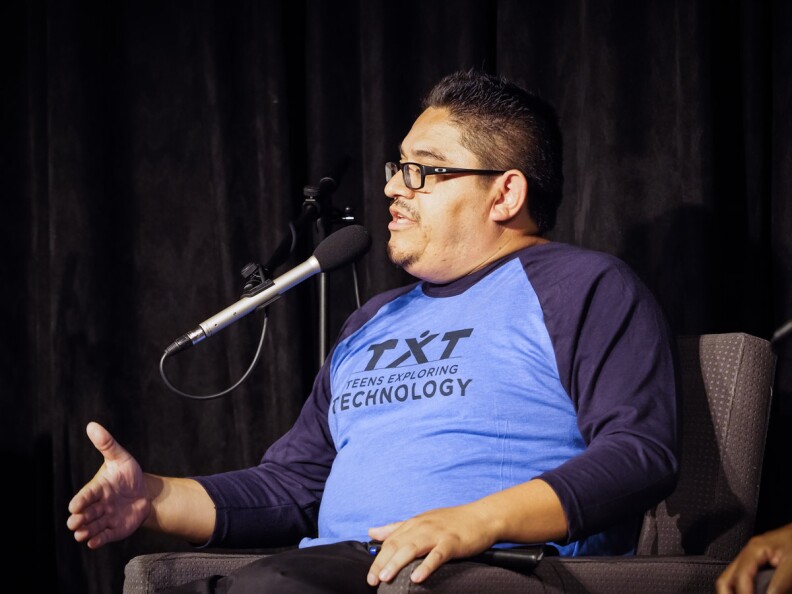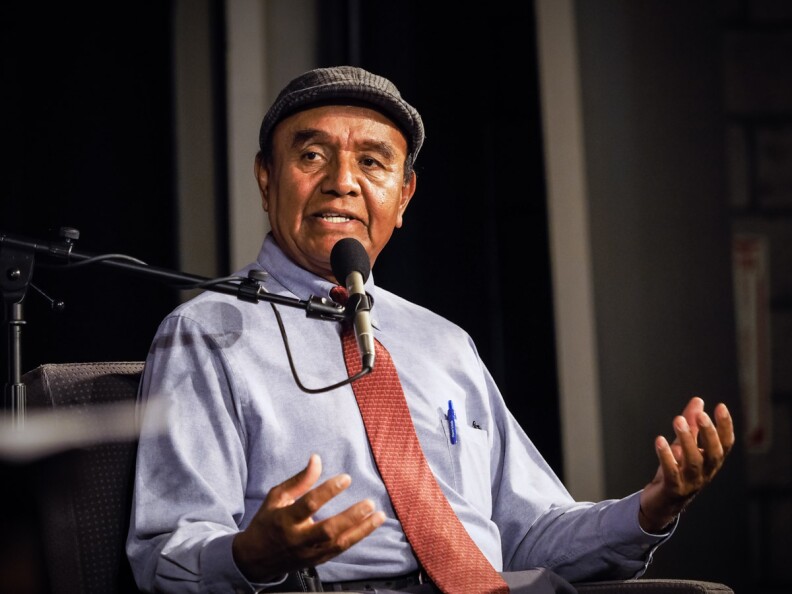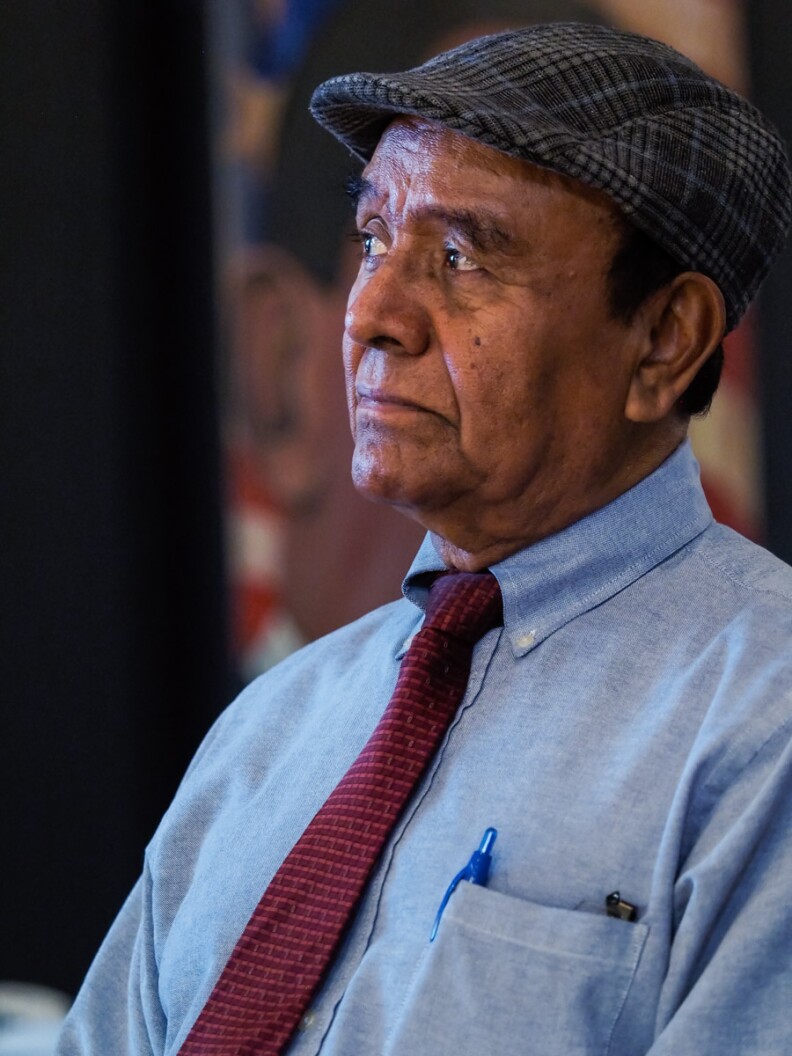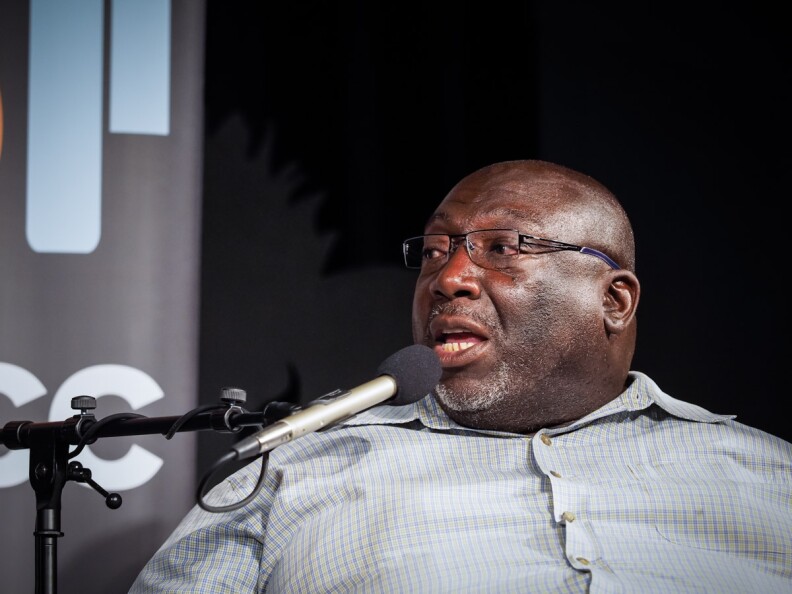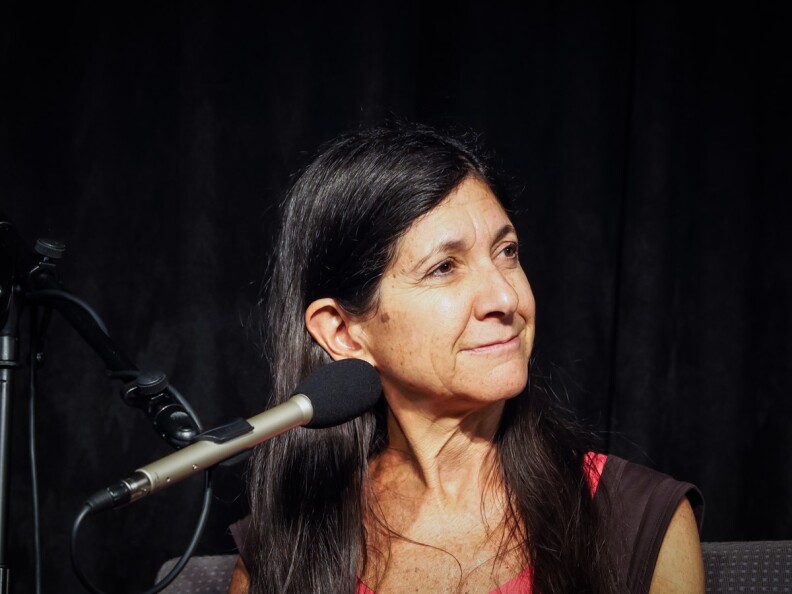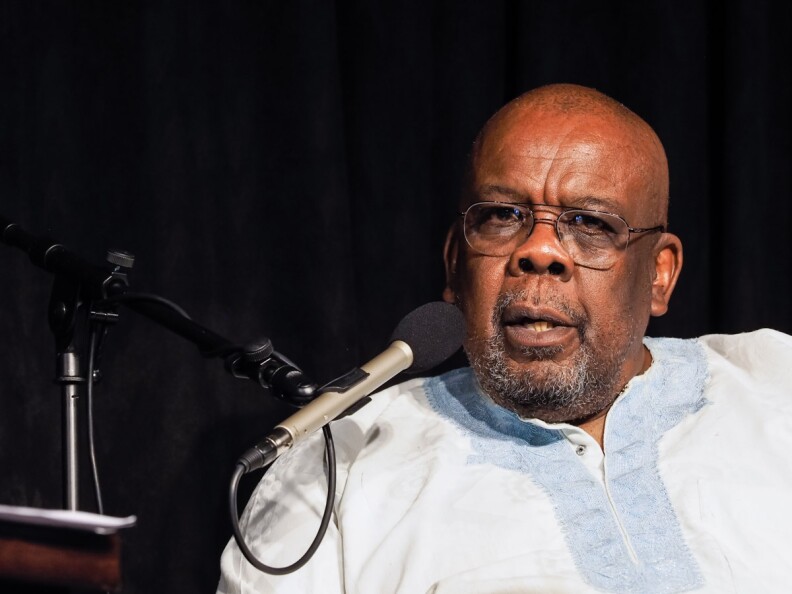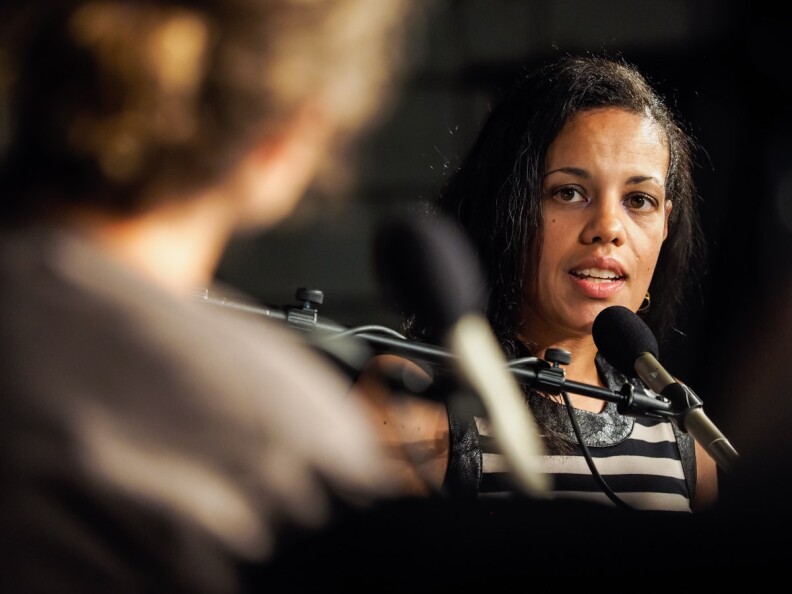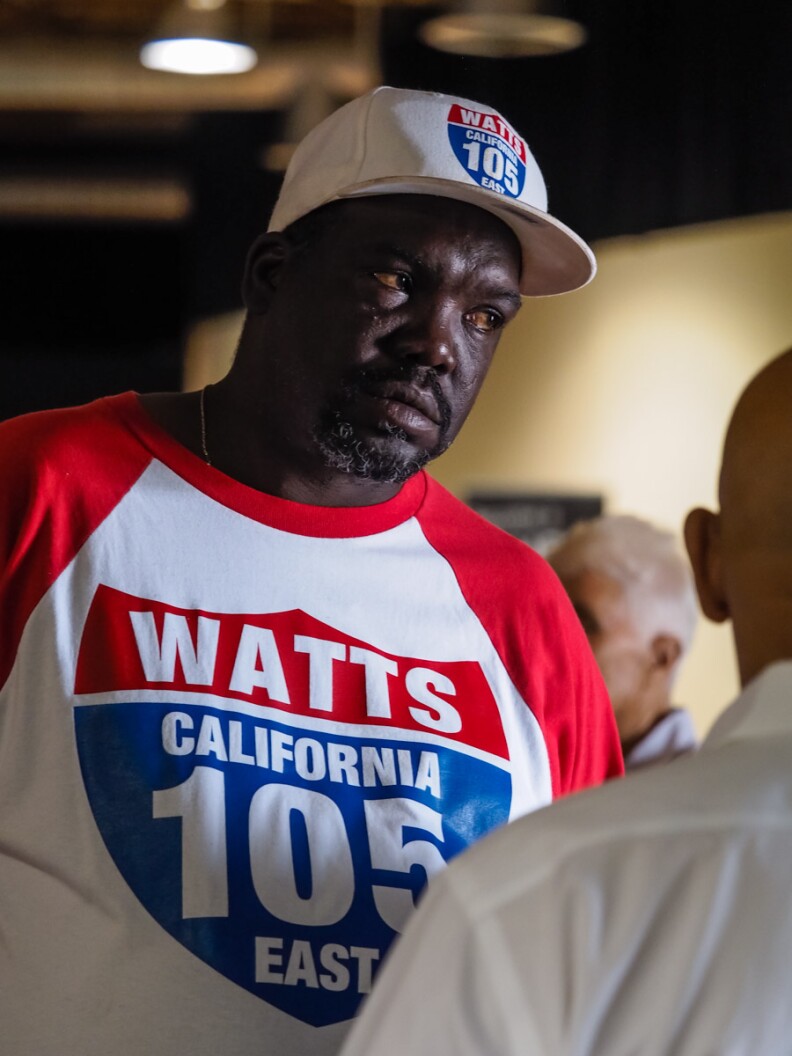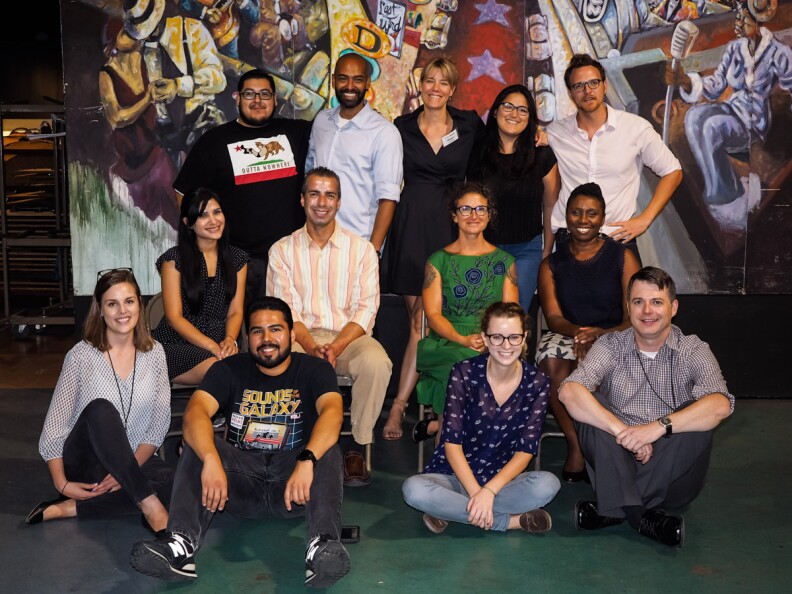On Tuesday August 11, 2015, Take Two took the show on the road to mark the 50th anniversary of what is commonly known as the Watts Riots.
More than 200 people filled the Phoenix Room of the Watts Labor Community Action Committee on South Central Ave, just a mile away from Avalon and 116th Street, the site where Marquette Frye, a young African-American man was stopped on suspicion of drunk driving by a white officer on a hot summer's day 50 years earlier.
That traffic stop led to six days of civil unrest and what many in Watts call the rebellion. Thirty four people died between August 11 and 17. Hundreds more were injured and damage to property totaled over $40 million.
Listen to Dr. Perry Crouch, Pastor Robert Lee Arline, Paul Martinez, Dearthy Pitcher - Henderson, Barbara J. Stanton and Donnie Joubert recall their memories of the unrest in Watts in 1965 as part of the "This is Watts" project, sponsored by the Department of Cultural Affairs, in partnership with The Los Angeles Human Relations Commission and Councilman Buscaino.
Tim Watkins, CEO of the Watts Labor Community Action Committee recalls one of his memories of the civil unrest;
"One of the photographs [in my mind] is Sen-Sen - a breath freshener. It was one of the only things that didn't burn up in the fire .. it was in a foil packet. The guy in the liquor store said we could go in and get whatever we wanted and I got Sen-Sen."
Take Two's live two hour show from Watts - the first time the program has broadcast from a remote location - did more than look back on the '65 unrest. It delved into the stories of the people who live in the 2.2 square mile South Los Angeles neighborhood and shared how locals view the place they call home.
"Watts is beautiful," said Bruce Lemon, artistic director with the Watts Village Theater Company. His colleague, Devonne Bowman said she had no issues being raised in Watts.
" I personally never had any interactions with feeling fear or violence. I just grew up thinking that my neighborhood was like any other neighborhood, until I got to high school and people would say 'oh, girl, you live in Watts?' Then when I went to college people would say 'you made it out' even people from L.A. would say that. I was very surprised."
The conversation covered everything from the changing demographics in Watts and tackling gang membership to parenting through the group, Project Fatherhood and the issue of community policing. LAPD's Senior Lead Officer for Watts, Robert Yanez acknowledged the area had its problems in the past, but things are very different today.
"I walk through the housing developments with no problem because people know I'm not there to take them to jail. They say hello and ask me how I'm doing. "
The live broadcast closed out with a look at the significance of the arts in Watts. It played a significant role in the healing of Watts after the civil unrest, represented by the work of poets such as the Watts Prophets. One of the original members, Amde Hamilton recorded a special poem for the audience, while Johnie Scott from the Watts Writers Workshop and Shana Redmond, author of "Anthem: Sounds of Solidarity in the African Diaspora" discussed the intersection of music and poetry to round out the show. The conversation continued long after the program ended.
Two hours was never going to be enough to cover the past, present and future of a neighborhood in transition, but the team at Take Two would like to thank everyone who came out to listen and participate in our special Watts broadcast.
Watch the Livestream of the event below or listen to the full broadcast here.



